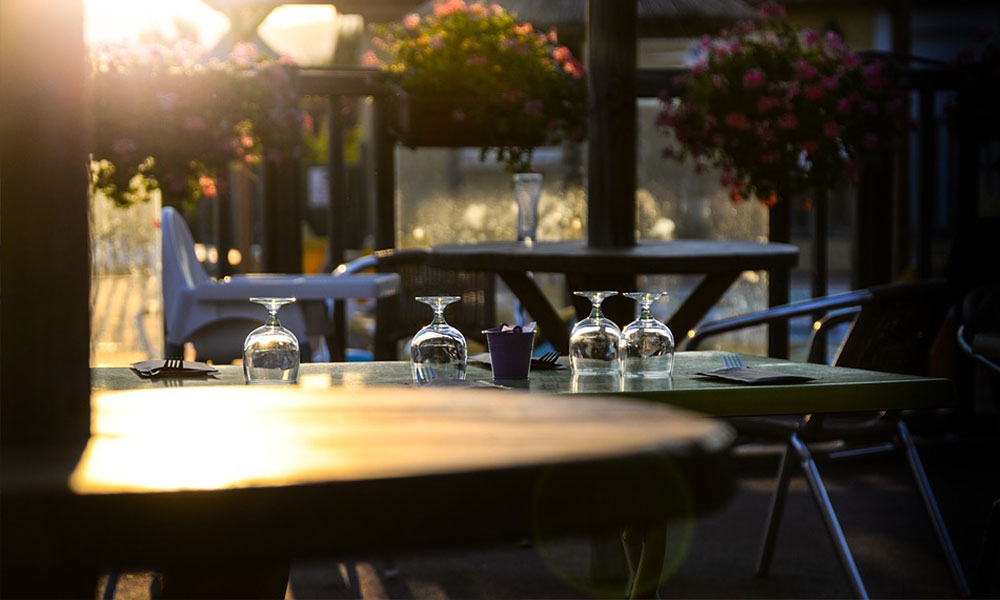A glass of tea costs RM1 in a hawker stall; RM1.80 in a kopitiam, about RM12 in a franchised café and up to RM18 for a cuppa in a five-star hotel. Which one of them is making a decent profit and which one is making a humongous yield?
There were days when a glass of t’ng nang teh or Chinese tea would accompany gratis with a meal in a restaurant. Then when charges were imposed, it started with five sen (when a plater of fried rice was RM1) and has steadily been increased to the present 60 sen in the Klang Valley.
In all instances, it is a case of a willing seller, willing buyer. If you think the price is high, go elsewhere or choose not to have a drink to wash down your meal.
The news that the Domestic Trade and Consumer Affairs Ministry has issued 84 notices against food and beverage premises operators nationwide for charging more than RM1 for a glass of water comes as a surprise.
Traders issued with the notice have two to five working days to provide the information required by the ministry before further action is taken in accordance with the Price Control and Anti-Profiteering Act.
Although action to keep prices of food and beverages reasonable is most welcome, the fixing of a “reasonable price” has opened a plethora of problems and turns the situation into a tricky and yet risky one to manoeuvre.
“This should not happen... maybe a more appropriate price would be between RM0.20 and RM0.30,” Bernama quoted Domestic Trade and Consumer Affairs Deputy Minister Rosol Wahid as saying.

Herein lies the danger. How did he arrive at those figures? Let’s crunch some numbers. The cost of water in the Klang Valley is 57 sen per 1,000 litres which means it costs less than a sen – 0,057 for a litre. We know that a glass does not exceed 300ml and hence the cost of water is about 0.02 sen.
Hence, theoretically, is the ministry allowing and condoning a 10,000 percent margin of profit?
Let us take another case. Bottled or canned aerated water is sold at the same price – to hawker stalls, kopitiam and hotels. If the cost price is constant, the difference in the selling price is the profit. While the hawker makes RM0.80 and the kopitiam RM1, the hotel makes a whopping RM17! Would this not come under the Act, requiring the hotel to be served with a notice?
Many years ago, it was the same ministry that warned roti canai sellers not to raise their prices following a marginal increase in the price of wheat flour. Checks were conducted but no summonses were issued.
The smart guys reduced the size of the dough and there was nothing that could be done as the ministry did not provide any specifications on food! Enforcement teams had to put their tails between their legs and retreat.
A hotel in Kuala Lumpur charges RM45 for roti canai and this does not include the service and government taxes. Profiteering? Will there be a crackdown on upmarket eateries where the rich and famous meet for a tete-to-tete?

In a free enterprise system that this country has operated, the seller is free to fix the price of his goods or services. Except for some food items which come under the controlled list during festive seasons when ceiling prices are fixed, a businessperson has the right to fix prices as he deems fit.
So, will the ministry play nanny and request a complete explanation from all eateries as to how they fix the prices? - Mkini
R NADESWARAN says the free enterprise system should not be destroyed by over-zealous attempts at scoring Brownie points. Comments: citizen.nades22@gmail.com
The views expressed here are those of the author/contributor and do not necessarily represent the views of MMKtT.




No comments:
Post a Comment
Note: Only a member of this blog may post a comment.